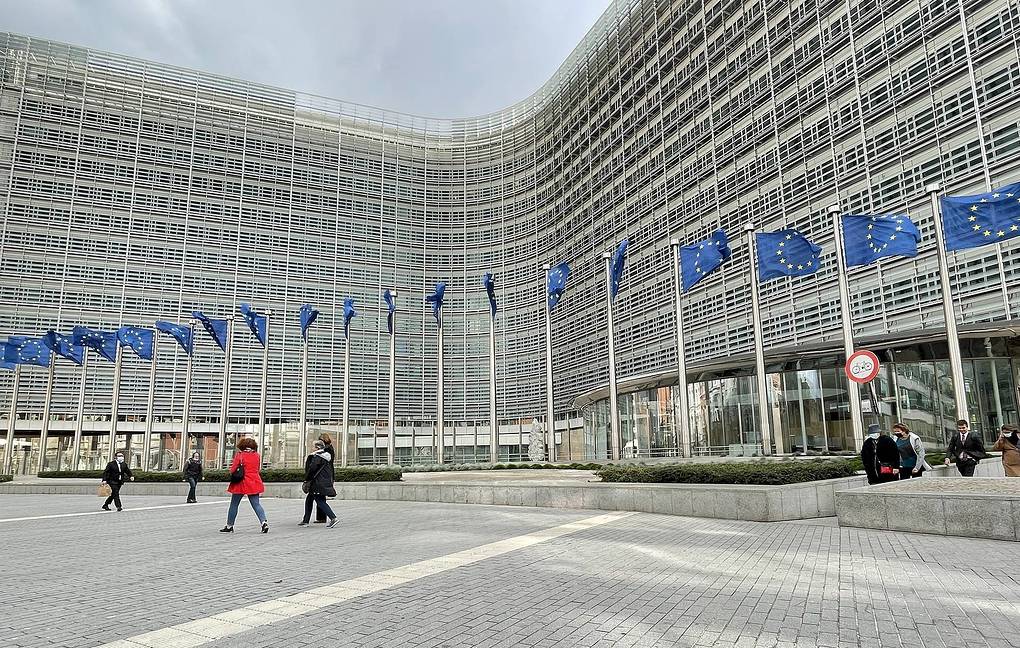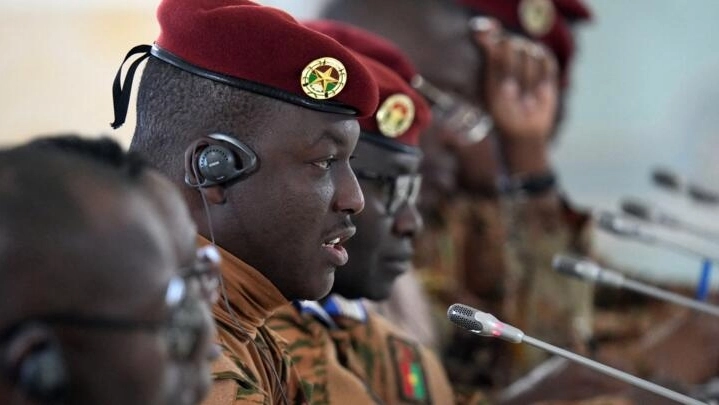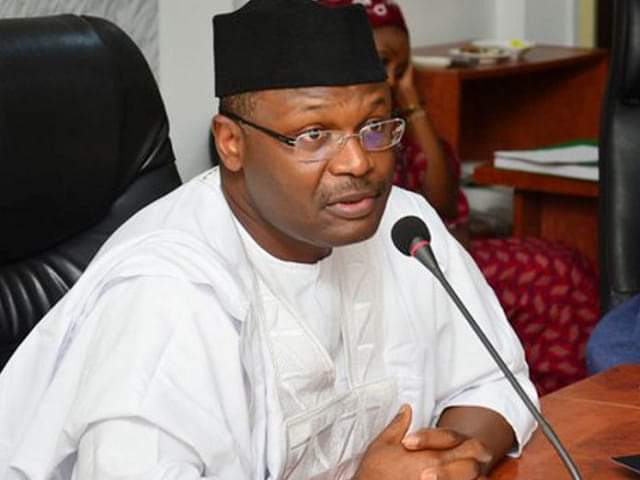Press review: How Syria plays into possible peace talks on Ukraine and EU pressures India

Top stories from the Russian press on Tuesday, April 26th
Nezavisimaya Gazeta: Is Syria Turkey’s bargaining chip with Kremlin to jumpstart Ukraine peace talks?
On Tuesday, April 26, Vladimir Putin will meet with UN Secretary General Antonio Guterres, who has just returned from Turkey, where he discussed the prospects for resolving the Russian-Ukrainian conflict with Turkish President Recep Tayyip Erdogan. The day before, Turkish Foreign Minister Mevlut Cavusoglu made an unexpected announcement, claiming that a particular agreement between Russia and Ukraine was nearing completion. Neither Moscow nor Kiev acknowledged his statements, but nor did they reject them. According to Nezavisimaya Gazeta, this adds to the intrigue surrounding Guterres’ talks in the Turkish and Russian capitals.
The minister’s comments could be interpreted as a domestic policy statement – Erdogan’s approval ratings are declining, and presidential elections will be held next year, the newspaper writes. His role as a mediator in the Russian-Ukrainian conflict should help him gain some points.

The General Secretary’s tour almost coincided with other developments directly related to Russia. The UN General Assembly will vote on a draft resolution to reduce Russia’s position in this organization on April 26.
The resolution appears to be an attempt to browbeat Russia, the newspaper writes. At the same time, Turkey’s surprising decision to prohibit Russian aircraft, both military and civilian, from flying to Syria over its airspace, made just before the Secretary General’s arrival in Ankara, also appears to be a continuation of that. “Are these events related? To a certain extent, yes. Turkey says that the longer the conflict continues, the longer Russia refuses substantive dialogue, the more Ankara will be forced to get involved in using pressure on Russia, because it is under pressure from the United States and NATO itself,” expert of the Russian International Affairs Council (RIAC) Kirill Semenov told the newspaper.
The option of exchanging Ukraine for Syria is unacceptable to the Kremlin, thus negotiations on this are unlikely, Nezavisimaya Gazeta writes. At the same time, there is yet to be a victorious end to Russia’s special operation, which means that a variety of options, including an agreement on specific circumstances, cannot be ruled out.
Izvestia: Should Russia be worried about Western pressure on India
The European Union has joined the bandwagon to lure India into taking the West’s side in the Ukrainian crisis. That said, India so far has taken a neutral stance, as some Moscow’s opponents say, a pro-Russian stance. On April 24-25, President of the European Commission Ursula von der Leyen paid a visit to New Delhi. European diplomacy offered cooperation with EU member-states as an alternative to economic ties with Russia, Izvestia writes. Russia should not worry about the Western pressure on India, according to experts interviewed by the newspaper.
So far, India has not abandoned Russian energy resources. On the contrary, New Delhi has doubled its purchases of Russian oil. Now, a diplomatic source told Bloomberg, the main purpose of the meetings was to provide India with a viable alternative to diversifying military-technical cooperation, the field where Moscow has been leading for many years. According to Western and Indian media, New Delhi was offered to buy more weapons from Europe and create joint ventures in this area. India was also offered to resume negotiations on a comprehensive trade deal with the EU and to create a Trade and Technology Council.
A source in Indian diplomatic circles told Izvestia the situation in Ukraine hurt the country’s national interests. “Suddenly, we were face with such pressure. And now we have to digress from more important economic tasks to respond to this pressure due to the recent events,” the source said.
However, Russia should not worry about the Western pressure on India, experts told Izvestia. The South Asian powerhouse’s ties with the West, and with the US and even more so with its former colonizer, the United Kingdom, did not prevent it from cooperating with the USSR once, and over the past decades India has pursued an independent foreign policy, Head of the Center for Indian Studies at the Institute of Oriental Studies of the Russian Academy of Sciences Tatyana Shaumyan believes. “This is a country that has earned the right to pursue its own foreign policy without regard to others. Russian-Indian relations are one of the important aspects of it. Russian-Indian mutual understanding and cooperation have a long-term nature,” she told the newspaper.
Nezavisimaya Gazeta: Kiev hopes Azovstal will top UN chief’s agenda
The Russian Ministry of Defense on Monday reopened a humanitarian corridor for residents to flee the Azovstal industrial zone in Mariupol and offered the Ukrainian forces, even the Azov battalion, besieged there to surrender. Ukraine’s Deputy Prime Minister Irina Vereshchuk has also asked the UN to open humanitarian corridors. At the same time, experts told Nezavisimaya Gazeta that the Azov militants are not on board with the present government’s political ideas.
Humanitarian corridors were also opened last week, and were primarily used by civilian residents near Azovstal who were trapped in the combat zone, according to the newspaper. Meanwhile, Vereshchuk stated that the UN should help secure a humanitarian corridor from Mariupol, and that this is exactly what the UN chief should discuss when he visits Kiev.
Kiev makes a lot of noise but is doing next to nothing to save their fighters holed up at the Azovstal steel complex, leading expert at the Russian Institute for Strategic Studies Oleg Nemensky told the newspaper. “It is beneficial for Kiev that the ultra-right Azov battalion does not leave the Mariupol industrial zone. They prevent the so-called pro-Bandera element from seizing control of the country’s territory because Azov and them have different ideological approaches and views on the future of the Ukrainian state,” he said. Due to the present internal animosity, both from the majority of Ukrainian nationalists and the current government, Kiev will be content if the primary backbone of the Azov formation dies in Mariupol, according to the expert.
“One gets the impression that Ukraine is deliberately trying to draw the attention of the international community to the industrial zone in Mariupol,” Director of the Center for Euro-Asian Studies at MGIMO Ivan Safranchuk told the newspaper. Many people feel that the Ukrainian representatives are trying to rescue someone very important, possibly foreigners, according to the expert, who also believes that Kiev may be attempting to postpone the Donbass operation.
Kommersant: Russia takes aim at Western weapon supplies to Ukraine
Washington will continue to provide hundreds of millions of dollars in military assistance to Ukraine. Secretary of State Antony Blinken and Secretary of Defense Lloyd Austin discussed the situation during their visit to Kiev after the outbreak of hostilities. The Pentagon has already announced new deliveries of weapons to the Ukrainian army. At the same time, Moscow has sent a warning that any shipments that contain weapons for Ukraine will become a legitimate target for the Russian military. For the first time, a coordinated strike was launched on railway infrastructure facilities west of Kiev on Monday in order to thwart the delivery of military supplies, Kommersant writes.
The United States announced that it was earmarking $713 mln for Ukraine’s military funding, with $322 mln going directly to Kiev, and the rest – to 15 US allies that have provided Ukraine with critical weapons since the outbreak of hostilities in February. All measures bring the total amount of US military assistance to Ukraine provided since the end of February to $3.7 bln.
On Tuesday, Austin will be in Germany will discuss with the US’ NATO colleagues how to help Ukraine even further. Meanwhile, there is a heated dispute in Germany about the supply of weapons to Ukraine, Kommersant writes. Last week, German Chancellor Olaf Scholz said that the reserves of the German armed forces were mostly exhausted.
Earlier, Russian Foreign Minister Sergey Lavrov warned that any shipments that contain weapons for Ukraine would become a legitimate target for Russia. On Monday night, the Russian military attacked the logistics infrastructure of Ukraine. The General Staff of the Armed Forces of Ukraine confirmed Russia’s attempts to destroy the supply routes of military-technical assistance.
“For the first time, the Russian Armed Forces delivered a coordinated and targeted strike on railway infrastructure facilities west of Kiev. Why right now and right there? I think the reason is obvious: a massive flow of military supplies and heavy weapons from Poland,” transport expert and Russian Geographical Society member Sergey Sigachev told Kommersant.
Izvestia: Russian coal sets sights on East
Russian supplies of coking coal this March rose two and a half times more than in 2021, despite the fact that prices for this energy resource tripled last year, and almost doubled at the beginning of this year, Izvestia writes. Experts told the newspaper that diminishing Russian coal supplies to Europe may have accelerated the process of building economic connections between Russia and China.
According to Bloomberg, China is actively buying Russian coal against declining exports of this raw material to other countries. Last March, Beijing bought 550,000 tonnes of coking coal from Moscow, and in March 2022 it purchased 1.4 mln tonnes.
Freedom Finance analyst Vladimir Chernov told Izvestia that coal imports from Russia to China will continue to grow, since 60% of all electricity production in China is generated by coal-fired thermal power plants. At the same time, the analyst noted that an agreement is currently being discussed to supply China with 100 mln tonnes of coal per year, which is twice as much as in 2021. And given the technical advantages of Russian fuel, the likelihood of concluding such a deal is very high.
In general, the deterioration of relations with Western countries, which led to a reduction in the supply of Russian coal to Europe, accelerated the process of strengthening economic ties between Russia and China that had begun earlier, the newspaper writes. Head of AMarkets analytical department Artem Deev noted that Russia has long been preparing to turn to the East. Over the past years, programs have been implemented to expand the capacity of the Trans-Siberian Railway and increase coal transportation capacity.
Vladimir Chernov from Freedom Finance told Izvestia that exports of Russian coal to China will depend on the volume of China’s own production. At the same time, transport infrastructure could pose a threat to Russia’s coal exports, the expert added.
TASS is not responsible for the material quoted in these press reviews
TASS









